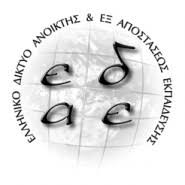Στην παρούσα έρευνα διερευνήθηκαν απόψεις 125 εκπαιδευτικών ειδικής και γενικής αγωγής της πρωτοβάθμιας δημοτικής εκπαίδευσης, αναφορικά με τη συμπερίληψη των παιδιών με ειδικές εκπαιδευτικές ανάγκες ή και αναπηρία στην εξ αποστάσεως σχολική εκπαίδευση κατά τη διάρκεια της πανδημίας Covid-19. Στόχοι της μελέτης ήταν η διερεύνηση των προβλημάτων και των δυσκολιών που προέκυψαν από τη συνεκπαίδευση των παιδιών με ειδικές εκπαιδευτικές ανάγκες, η συνεργασία των εκπαιδευτικών ειδικής αγωγής με τους/τις συναδέλφους/ισσες της γενικής αγωγής, καθώς και η συνεργασία με τους γονείς. Κάποια από τα βασικά ευρήματα που προέκυψαν είναι η δυσκολία χρήσης των ηλεκτρονικών πλατφορμών από τους/τις μαθητές/τριες για την παρακολούθηση των μαθημάτων, δυσκολίες αντίληψης, συγκέντρωσης, επικοινωνίας, μάθησης ή και προσαρμογής λόγω των ιδιαίτερων αναγκών των μαθητών/τριών, καθώς και δυσκολίες στην εξατομικευμένη προσέγγιση των μαθητών/τριών με ειδικές εκπαιδευτικές ανάγκες ή αναπηρίες. Τέλος, διαπιστώνεται πως υπήρξε σημαντική αύξηση φόρτου εργασίας και προετοιμασίας των εκπαιδευτικών για την εξ αποστάσεως διδασκαλία.
(EL)
Nowadays the spread of the new Covid-19 virus around the world has led to a pandemic with unprecedented consequences. In a short period of time the pandemic due to Covid-19 had significantly affected every person both personally and socially, as well as professionally and financially (Raikou, Konstantopoulou, & Lavidas, 2021). There have been major upheavals in the economy of many countries, health systems have reached the point of collapse, in the business sector there have been mass layoffs and even the closure of many businesses. Also, the increase in cases of domestic violence and even divorces was intense, changes that affected both the mental and physical health of people, as well as the gradual closing of all educational units, which lasted for a long time (Bakirtzi, 2020). Education is a constantly changing field, which is greatly influenced by all these conditions affecting society. In the school space, as expected, the effects of social phenomena, but also of social changes, are presented, which come to create an entirely different reality. The conditions resulting from the Covid-19 pandemic have led education to a state of emergency, requiring immediate and flexible solutions in order to continue the educational process. Therefore, the solution given was the shift to distance learning (Karalis & Raikou, 2020). Distance learning has taken on a leading role in the last two school years, due to the spread of the pandemic. Until recently, the practices of distance education were applied only in university programs, such as in master's and doctoral theses (Lionarakis, Manousou, Hartofylaka, & Papadimitriou, 2021). Distance learning has come to create a new reality with its own characteristics and needs. Teachers and students now had to adapt to distance education, which was new and there were no previous experiences on it, especially for primary and secondary school students. The immediate transition to distance education in all educational structures aimed to maintain the contact of teachers and students with the learning process (Raikou et al., 2021). Of course, with this transition from traditional-formal education to distance learning, the role of special education within it also changed. It was certain that care had to be taken both for students who were part of general education and for those who belong to special and inclusive education. Distance learning in special education is not appropriate without the use of appropriate means and without an individualized training program. Teaching in special education must be differentiated and individualized, according to the developmental characteristics of each student. In addition, distance learning can be an opportunity for students with special learning difficulties, when the appropriate means of technology are provided (Karasel, Bastas, Altinay, Altinay, & Dagli, 2020). This research study investigates the views of 125 special education and general education teachers in Primary Education, regarding the inclusion of children with special educational needs or disabilities in distance education during the Covid-19 pandemic. In this work, an effort has been made to investigate the challenges and the opportunities for an equal, accessible and socially fair inclusive education. The aim of this study was to investigate the problems and difficulties that have emerged from the inclusion of children with special educational needs, the difficulties they called to face, the collaboration of special education teachers with school leadership and with colleagues of general education, as well as the communication and cooperation with parents. In this survey, the quantitative method was used to collect and analyze data. The questionnaire consisting of 28 closed-ended five-point Likert questions was used as the main research tool for data collection and for their analysis used the IBM SPSS Statistics 26 statistical software. Some of the basic findings that have emerged are the lack of student guidance on the use of new technologies, the difficulty of using electronic platforms by students to monitor courses, there were also significant difficulties of perception, concentration, communication, learning or adaptation due to the particular needs of students, as well as difficulties in individualized instruction to pupils with special educational needs or disabilities. Finally, it is noted that there has been a significant increase in workload and preparation of teachers to distance learning.
(EN)
 Greek Network of Open and Distance Education (EDAE)
Greek Network of Open and Distance Education (EDAE)

